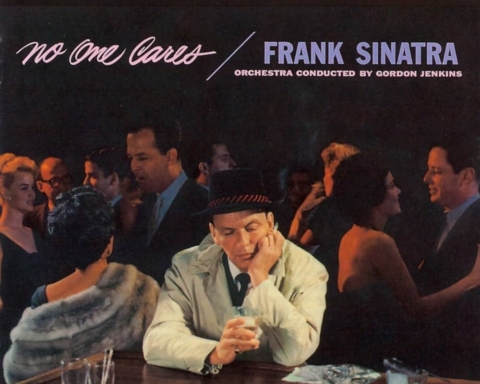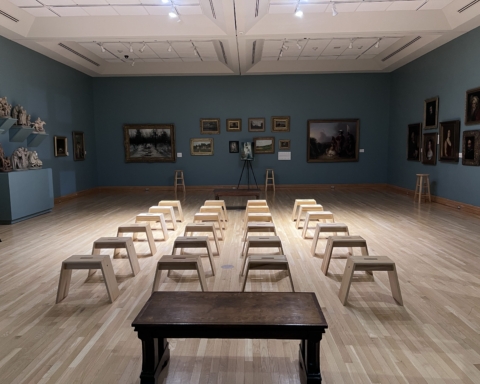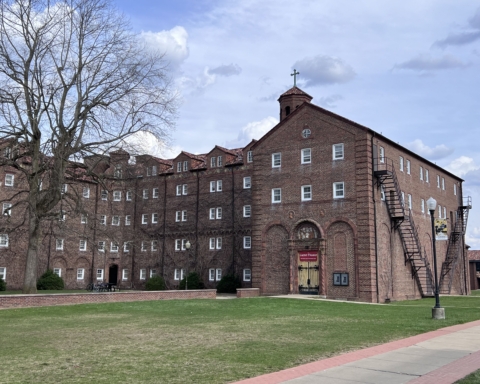By Philosophy Club members
Imagine being poor, single and forced into a diet of water, vegetables, and no alcohol. Vision-bending migraines are common. Your books rarely sell, you have few friends and you dine alone for almost every meal. Oh, and you may be dying from syphilis.
If you can enter this headspace, you may better understand why German philosopher Friedrich Nietzsche (1844-1900) wrote, “What does not kill me, makes me stronger.” You may also appreciate his equally Twitter-savvy line, “If we have our own why of life, we shall get along with almost any how.”
Many of us, even in a country as prosperous as the United States, face suffering. Sickness, death, aging and human fallibility assure that. More pointedly, however, many of us may also feel a loss of meaning. And as Nietzsche hints, this may be worse.
Without meaning, we may continue through life like an automaton on autopilot. No direction, just movement. Many millennials in this job market may relate. Pressured to succeed and follow dreams only to graduate with a piece of paper, a $50,000 debt, a retail job and a childhood bedroom, they hit a meaning-sapped adolescence. Or others may look at the world’s wars and corruption and let out a sad, absurd sigh.
Regardless of source, many Americans are not happy.
The National Institute for Mental Health cites about 6.7% of adults in the U.S. experience a major depressive disorder. According to the Centers for Disease Control and Prevention, U.S. suicides have increased every year for the past decade. And we fell six slots, from 11th to 17th, in the 2013 UN World Happiness Report from our 2011 place.
But, fortunately, Nietzsche and others can help.
Influenced by Nietzsche—in fact, Nietzsche’s “why” and “how” quote occurs in his book—psychiatrist Viktor Frankl also stressed meaning. In Man’s Search for Meaning (1946), Frankl distills his Holocaust experience into a pointed observation: prisoners who found meaning tended to survive better than those who didn’t, regardless of physical strength.
Calling our need for meaning the “will to meaning,” Frankl argued that meaning is essential for survival. He used this insight in his clinical practice, using the term “logotherapy” for his meaning-finding method, a type of therapy that some—though not all—practitioners still use.
Regardless of our suffering’s source, whether chemical or existential, thinkers like Nietzsche and Frankl present a hard truth: life has suffering and we must make sense of it. We may not have to survive their level of suffering or the suffering of war-torn countries but many of us still want meaning in the face of loss, terminal illness, dead-end jobs and painful breakups.
Moreover, this meaning is not something we find one day, like a lucky penny, and hold onto for the rest of our lives. It is a conscious task, an existential carpentry. We build meaning, like a Michelangelo slowly chipping away at marble or like a Haruki Murakami typing away each dawn on a novel. As Nietzsche wrote, “we want to be the poets of our life.”
We do have challenges, however. We have to fit this poetry in an already constructed world that may lack footing. Material circumstances may rein us in. Our health may build sudden roadblocks.
But if we truly think about it, argues the philosopher, in our short lives, we probably should find this meaning. Without meaning, we may find moments of pleasurable distraction and short-term joy, but a lasting, substantial happiness, able to weather our existential storms, takes thought and effort. It takes us calling up an old friend for coffee, saving money for a long-differed trip or taking an hour each day to paint.
With this in mind, write the poetry of your being—and e-mail us questions at SBUPhilosophyClub@gmail.com or visit our Facebook page at St. Bonaventure Philosophy Club.






